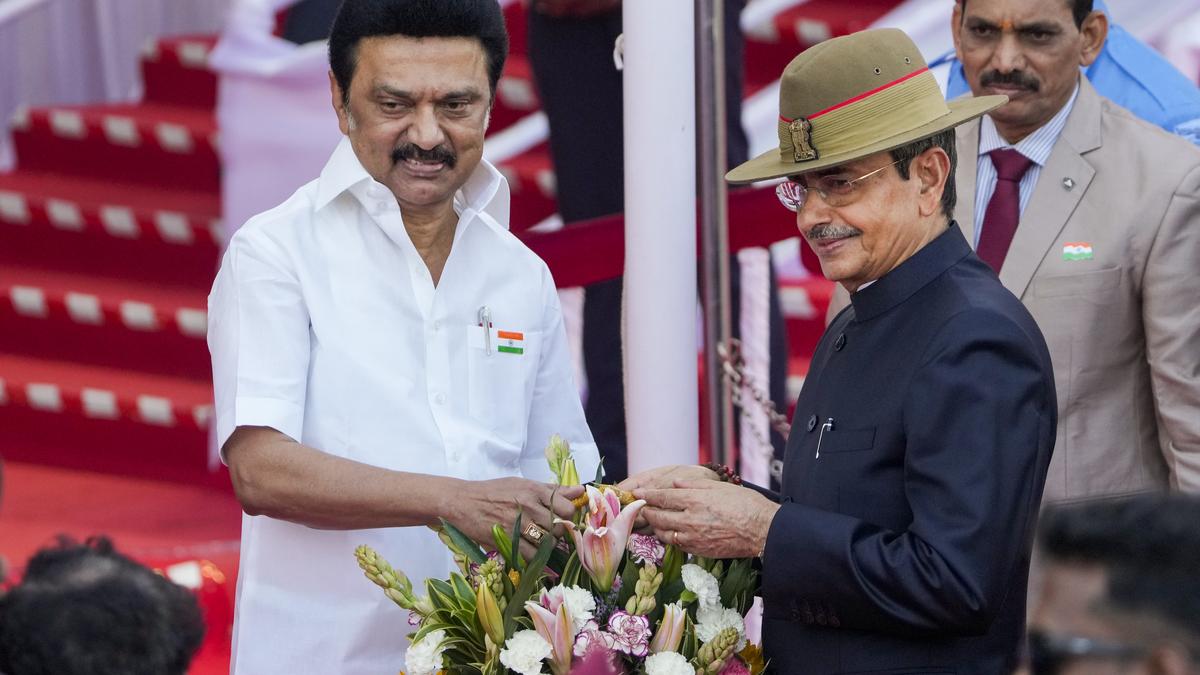Fixing Timelines for Governors

- 29 Sep 2025
In News:
The Supreme Court of India is currently examining a Presidential reference on whether fixed timelines can be prescribed for Governors and the President in giving assent to Bills passed by State legislatures. The reference arises from growing concerns over delays in assent, which have triggered debates about the balance of power, federalism, and accountability within India’s constitutional framework.
Constitutional Provisions
Under Article 200 of the Constitution, when a Bill is passed by a State legislature, it is presented to the Governor for assent. The Governor may:
- Grant assent.
- Withhold assent.
- Reserve the Bill for the President’s consideration.
- Return the Bill (if not a Money Bill) with a message for reconsideration.
If the legislature passes the Bill again, the Governor is constitutionally obliged to grant assent. Article 201 governs the President’s assent to Bills reserved by Governors. Notably, neither Article prescribes a timeframe for decision-making, allowing for indefinite delays, which some States view as a de facto pocket veto.
The Current Debate
States such as Tamil Nadu, Kerala, Punjab, and Telangana have raised complaints about Governors withholding or delaying assent, often stalling critical legislative reforms. The Supreme Court is tasked with determining whether judicially enforceable timelines can be set to prevent such inaction, while ensuring the Governor’s discretion is respected.
Proponents argue that indefinite delays undermine parliamentary democracy and the functioning of elected governments. Critics caution that imposing strict timelines could limit constitutional discretion and upset the delicate Centre-State balance. The Union government has maintained that Governors operate within their constitutional mandate and that delays may result from the need for scrutiny or consultation with the Centre.
Judicial Precedents
Earlier rulings, including Shamsher Singh v. State of Punjab (1974) and NabamRebia v. Deputy Speaker (2016), emphasized that Governors are generally bound by the aid and advice of the Council of Ministers, except in exceptional circumstances. The current reference under Article 143 seeks to clarify whether inaction can be constitutionally limited through prescribed timelines, ensuring accountability without undermining constitutional checks.
Implications for Federalism
- Strengthening Legislative Authority: Time-bound assent would reinforce the role of elected State legislatures, reducing the scope for executive interference.
- Preventing Political Deadlocks: Clear timelines could mitigate friction between Governors and State governments, facilitating smoother legislative functioning.
- Judicial Oversight: The Supreme Court’s intervention could clarify constitutional ambiguities affecting Centre-State relations, setting a precedent for other offices where delays impact governance.
- Balancing Discretion and Accountability: A measured approach could preserve the Governor’s discretionary powers while ensuring responsiveness to elected governments.
Conclusion
The question of whether timelines can be fixed for Governors and the President is more than a procedural issue—it reflects the tensions inherent in India’s federal design. Governors are intended as neutral constitutional authorities, yet their actions are often perceived through the prism of partisan politics. By addressing this grey area, the Supreme Court has an opportunity to redefine Centre-State dynamics, strengthen legislative authority, and enhance accountability within India’s parliamentary democracy. The ruling will have far-reaching implications for federal governance, political neutrality, and the balance of power in the legislative process.
